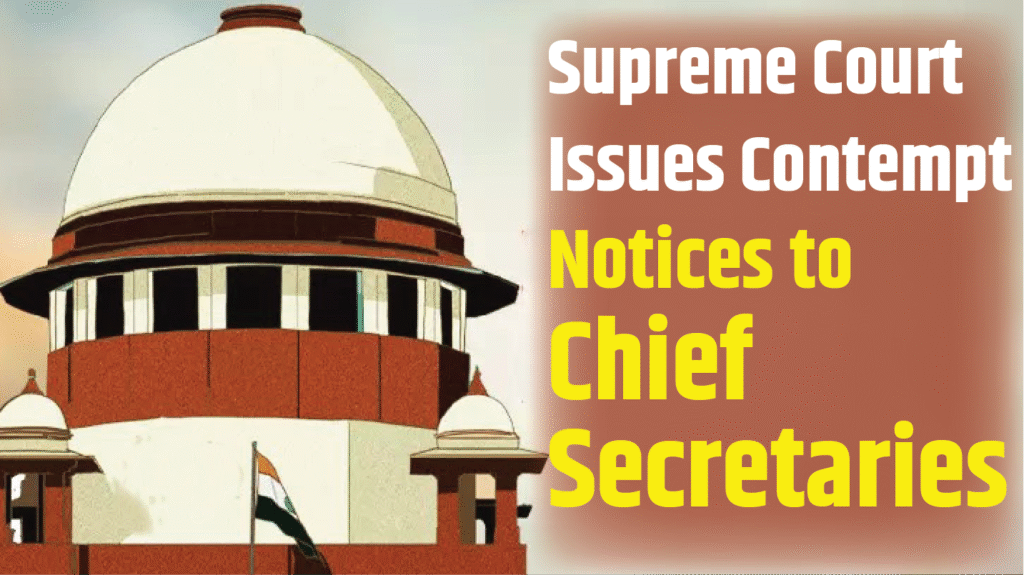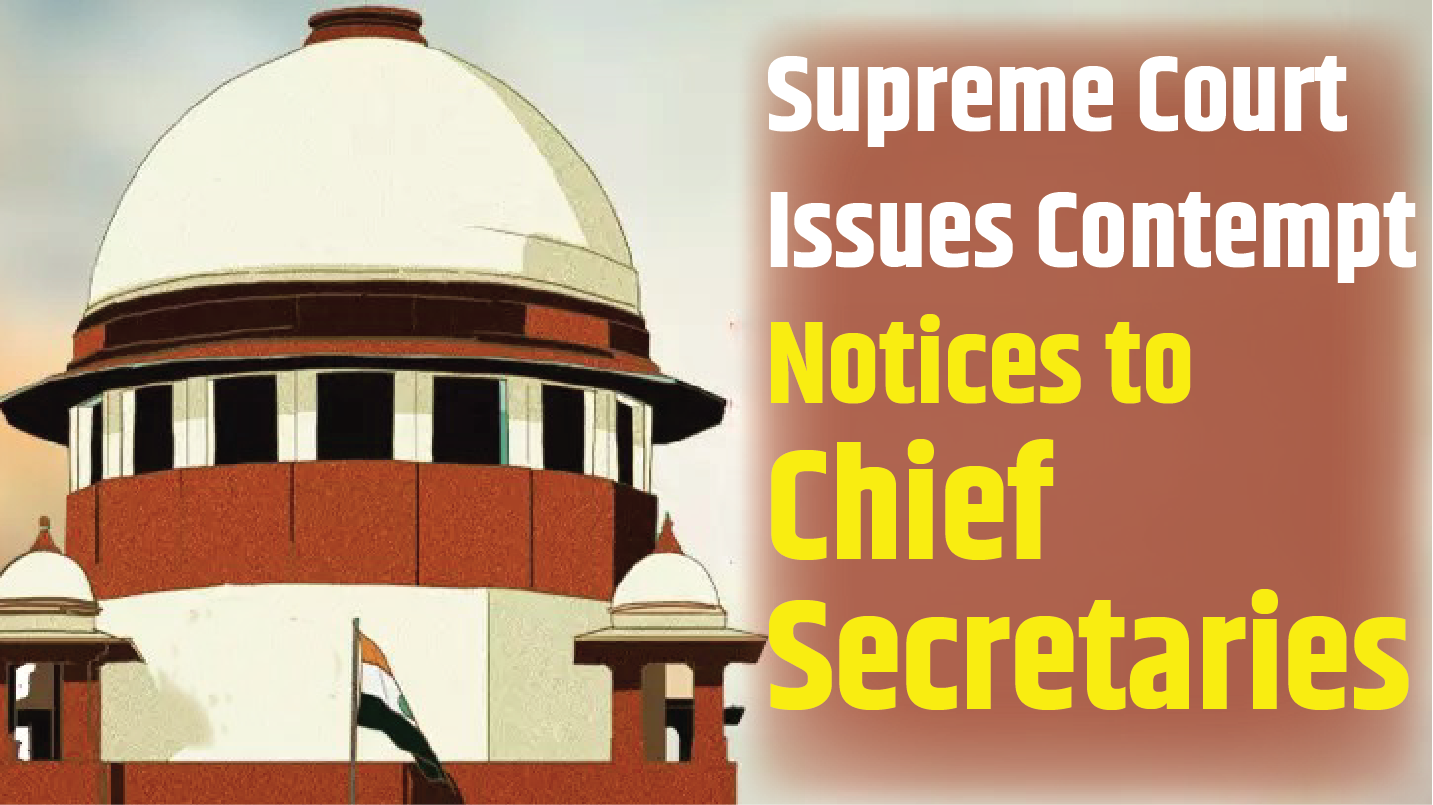
The Court pulled up the NCR states for wilfully violating its directive to fill vacancies in Pollution Control Boards by April 30, 2025.
News Desk, New Delhi, 09-May: The Supreme Court has come down heavily on the governments of Delhi, Uttar Pradesh, Haryana, and Rajasthan for failing to comply with its earlier directive to fill vacancies in their Pollution Control Boards (PCBs) and Pollution Control Committees. Terming the inaction a “wilful breach,” the Court on Thursday issued contempt notices to the Chief Secretaries of these states.
A Bench comprising Justice Abhay S. Oka and Justice Ujjal Bhuyan was hearing the long-pending matter of MC Mehta v. Union of India and Ors. [WP (C) No. 13029/1985], concerning pollution in the National Capital Region (NCR). The Bench had earlier ordered, on August 27, 2024, that all PCB vacancies in NCR states be filled by April 30, 2025.
“The states of Haryana, Rajasthan, UP, and Delhi have committed wilful breach of our order,” the Court said, warning that the Chief Secretaries must explain why they should not be punished under the Contempt of Courts Act, 1971.
Delhi Chief Secretary Summoned in Person
The Court directed the Chief Secretary of Delhi to appear personally on May 19, 2025. The request for a virtual appearance was outright rejected. “Let him come physically,” Justice Oka responded, expressing frustration at the continued disregard of court orders.
“Every time we are required to call the Chief Secretary… we’ll have to request the Registry to provide a room for him in the court if this lacklustre attitude continues,” he added.
Shock Over Vacancy Levels
Calling the situation a “very sorry state of affairs,” the Court observed that:
- 55% of sanctioned posts are vacant in the Delhi Pollution Control Committee
- 35% in Haryana
- 45% in Rajasthan and Uttar Pradesh
It remarked that Delhi’s Pollution Control Committee was “virtually defunct,” despite the capital’s chronic air pollution crisis.
“We are shocked that despite persistent pollution issues, 55% of posts in Delhi’s PCB are vacant,” the Court noted.
Court Orders on CPCB, CAQM and All States
Reiterating that PCBs are statutory bodies essential for enforcing the Environment Protection Act, 1986, Air Act, and Water Act, the Court passed several directions:
- Central Pollution Control Board (CPCB) must fill its 21% vacant posts by August 31, 2025, and file a compliance affidavit.
- Commission for Air Quality Management (CAQM) must conduct a systemic study of the working of all state PCBs and Pollution Control Committees, focusing on technology and equipment used, and submit a report by July end.
- All state PCBs and UT Pollution Control Committees must fill their respective vacancies by September 30, 2025.
The Court firmly stated that unless these bodies adopt modern technology, they cannot fulfil their legal mandates effectively.
Haryana’s Justification Rejected
The counsel for Haryana claimed that most vacancies were promotion posts to be filled internally and that suitable candidates were lacking. The Court responded that states could amend recruitment rules and even hire from outside their territorial boundaries to meet their staffing obligations.
In a lighter moment, Justice Oka quipped that since the Central Government already controls several institutions in Delhi, “it might as well take over the pollution control board too.”
Continued Scrutiny of Delhi and Others
Amicus Curiae Aparajita Singh informed the Court that 37 out of 56 posts in CAQM are also lying vacant. The Court directed that all these be filled by August 2025.
“CAQM cannot function effectively with over 30% vacancy,” the Court noted. “Its performance has improved recently, but staffing is critical to sustained delivery.”
The CPCB also revealed alarming data about other states, reporting that 90% of posts are vacant in Bihar, with several other states showing over 60% vacancy. Union Territories like Andaman and Nicobar Islands, Chandigarh, and Jammu & Kashmir also face similar staffing gaps.
Returnable Dates and Final Warning
The notices issued are returnable on:
- May 19, 2025 for Delhi
- July 18, 2025 for Haryana, Uttar Pradesh, and Rajasthan
“Non-compliance by these dates will amount to aggravated contempt,” the Court warned.
The Bench also referred to an earlier observation made on July 10, 2024, when the Delhi Government was criticised for relying on contractual workers instead of permanent staff. At the time, 233 out of 344 sanctioned posts in the Delhi Pollution Control Committee were found vacant.
For video updates on this ongoing issue, watch our coverage on The Legal Observer’s YouTube Channel, and stay updated with all developments in the News and Legal Helpline sections.
Proudly powered by The Legal observer




